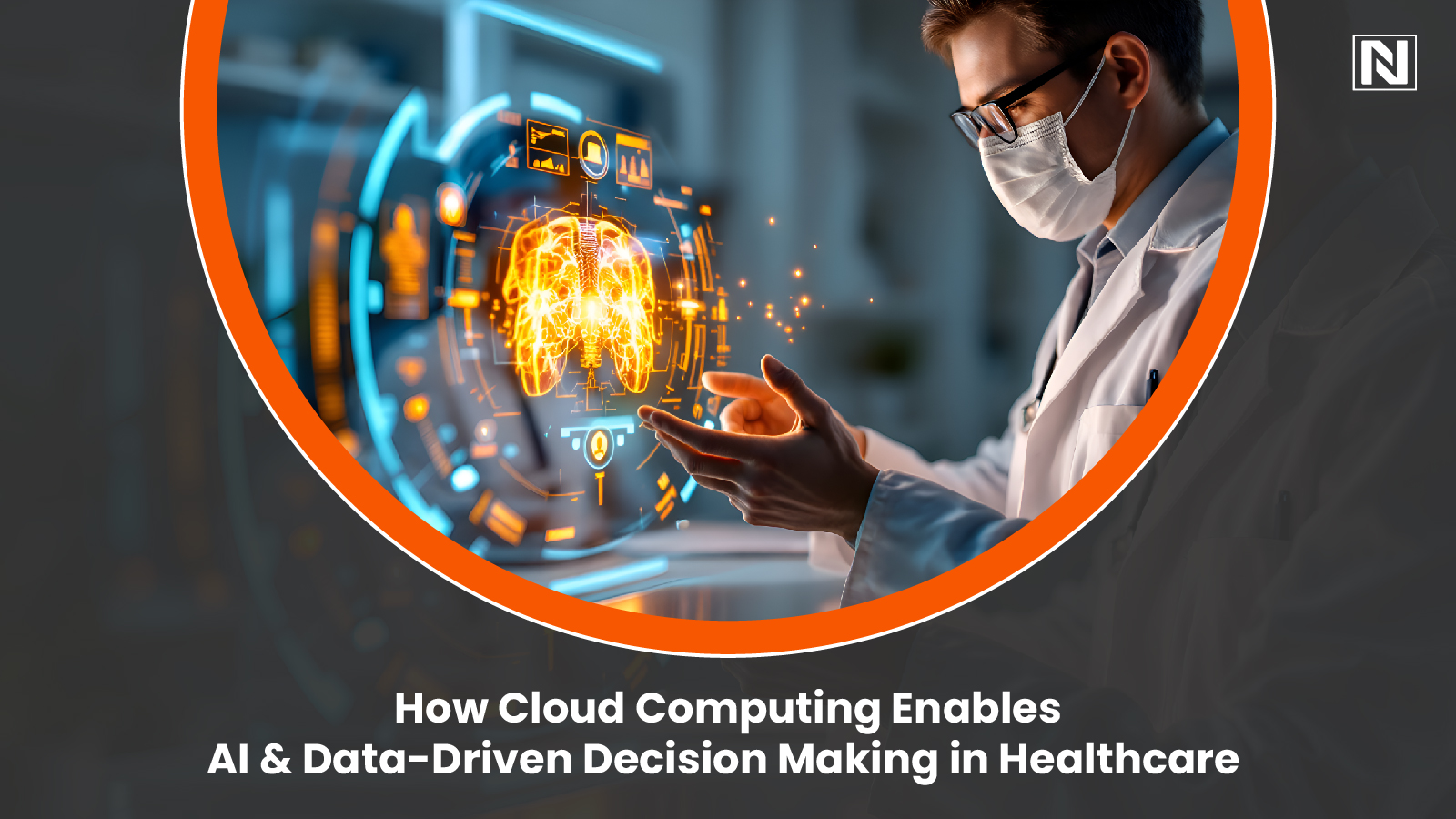
Did you know AI-powered diagnostics can reduce medical errors by up to 30%? Behind this breakthrough lies an unsung hero: cloud computing in healthcare. By providing the scalable infrastructure needed for AI and big data analytics, the cloud is enabling real-time decision-making that saves lives. But what does this mean for doctors and patients? The answer might just reshape modern medicine as we know it.
In this thought leadership piece, we’ll explore:
- How cloud computing powers AI-driven healthcare innovations
- Real-world applications of AI and cloud in diagnostics, treatment, and operations
- Security, compliance, and scalability considerations
- The future of data-driven decision-making in medicine
The Synergy Between Cloud Computing and AI in Healthcare
Healthcare generates massive amounts of data – electronic health records (EHRs), medical imaging, genomic sequences, and IoT-enabled wearables. Traditional on-premise systems struggle to store, process, and analyze this data efficiently.
This is where cloud computing in healthcare becomes indispensable. The cloud provides:
1. Scalability – Hospitals and research institutions can dynamically scale storage and computing power without heavy upfront investments.
2. Speed – AI models require immense processing power, cloud platforms like AWS, Azure, and Google Cloud offer GPU clusters for faster training and inference.
3. Collaboration – Secure cloud environments enable seamless data sharing between providers, researchers, and AI systems.
How AI Leverages the Cloud for Medical Breakthroughs
AI thrives on data, and the cloud acts as its backbone. Here’s how:

1. Enhanced Diagnostics & Predictive Analytics
AI-powered imaging tools (like those from Aidoc and Zebra Medical Vision) analyze X-rays, MRIs, and CT scans with superhuman accuracy. These models are trained on millions of anonymized patient records stored in the cloud, continuously improving their diagnostic precision.
Example: Google’s DeepMind Health uses cloud-based AI to detect diabetic retinopathy and breast cancer earlier than human radiologists.
2. Personalized Medicine & Genomics
Precision medicine tailors treatments based on a patient’s genetic makeup. Cloud platforms like DNAnexus and Illumina process petabytes of genomic data, enabling AI to identify mutations and recommend targeted therapies.
Impact: Hospitals using AI in healthcare for genomics can reduce trial-and-error drug prescriptions, improving patient outcomes.
3. Operational Efficiency & Automation
AI-driven chatbots (like those powered by IBM Watson) handle patient inquiries, appointment scheduling, and even preliminary diagnoses all hosted on cloud servers. Meanwhile, predictive algorithms optimize staff allocation and inventory management.
DID YOU KNOW?
The global cloud AI market, valued at USD 80.30 billion in 2024, is expected to reach USD 327.15 billion by 2029, with a CAGR of 32.4% over the forecast period.
The Role of Cloud Computing in Healthcare Data Security & Compliance
One major concern for healthcare leaders is data security. Patient records are highly sensitive, and breaches can be catastrophic. However, modern cloud providers comply with stringent regulations like:
- HIPAA (US)
- GDPR (EU)
- HITRUST
Key Security Advantages of Cloud Computing:
- Encryption at Rest & In Transit – Ensures data is unreadable if intercepted.
- Zero-Trust Architecture – Strict access controls limit who can view or modify data.
- Automated Compliance Reporting – Simplifies audits and reduces human error.
MUST READ BLOG – Cloud Cost Optimization Strategies for 2025
Future Trends: AI, Cloud, and the Next Wave of Healthcare Innovation
As cloud computing in healthcare evolves, we’re seeing emerging trends:
1. Federated Learning for Privacy-Preserving AI
Instead of centralizing data, federated learning allows AI models to train across multiple hospitals without sharing raw patient data, reducing privacy risks while improving accuracy.
2. Edge Computing + Cloud for Real-Time Decisions
Wearables and IoT devices generate real-time health data. Edge computing processes this locally, while the cloud aggregates insights for long-term analysis.
3. AI-Driven Drug Discovery
Pharma giants use cloud-based AI (like BenevolentAI) to simulate drug interactions, cutting R&D time from years to months.
Conclusion
The marriage of AI in healthcare and cloud computing is no longer optional, it’s a competitive necessity. Organizations that adopt these technologies will:
1. Improve diagnostic accuracy
2. Reduce operational costs
3. Enhance patient experiences
4. Stay ahead in medical research
For decision-makers, the question isn’t whether to invest in cloud-powered AI, it’s how fast they can implement it.
Frequently Asked Questions
How does cloud computing support AI in healthcare?
Cloud computing provides scalable storage, high-speed processing, and secure collaboration, enabling AI to analyze vast amounts of medical data for diagnostics, treatment personalization, and operational efficiency.
What are some real-world applications of AI and cloud in healthcare?
AI-powered diagnostics (e.g., detecting cancers via imaging), personalized medicine (genomic analysis), and operational automation (chatbots, predictive staffing) rely on cloud computing for data processing and storage.
How does cloud computing ensure healthcare data security?
Cloud providers use encryption, zero-trust architecture, and compliance with HIPAA/GDPR to protect patient data, reducing breaches and simplifying audits.
What is federated learning in healthcare AI?
Federated learning allows AI models to train across multiple hospitals without sharing raw patient data, improving accuracy while maintaining privacy.
Why is cloud computing essential for future healthcare innovation?
It enables real-time data analysis, AI-driven drug discovery, and seamless collaboration, helping healthcare providers improve diagnostics, reduce costs, and enhance patient care.
